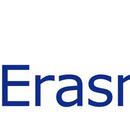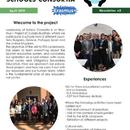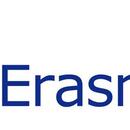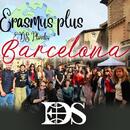Проекти 2019-2020
Leadership of School Consortial
Leadership of School Consortia is a 2-year Erasmus+ project bringing together 5 school consortia from 5 different countries: Bulgaria, Greece, Portugal, Spain and the United Kingdom. The overall aim of the project is to exchange good practice between the partners and share the lessons learnt by producing 5 case studies to support the exchange of good practices with the aim of developing the skills of leaders managing a group of schools or education establishments and therefore improve these schools in the areas where support is needed. The case studies will be freely accessible and other schools are most welcome to use them for their own benefit.
The organisation of school systems has changed significantly in recent years. The UK has seen the development of multi-academy trusts, with groups of schools working together. A similar arrangement of federations of schools operates in Portugal and in other countries, schools have combined phases of education on the same site, from Early Years through to Upper Secondary. In this project, this is the case for the partners from Greece and Bulgaria. Other structures bring together general, vocational and sometimes Higher Education all under the same umbrella. The Spanish partner in this project represents such a structure.
The leadership of these more complex structures is more challenging than running a single institution. This project brings together 5 different types of structures from 5 countries to share their practice, common issues and to explore best practice.
The LoSC project has the following aims:
- have 4 leaders or potential leaders from each partner to undertake 5 study visits to analyse examples of successful multi-institutional education leadership
- identify common management issues, specific areas of leadership challenge and opportunity
- identify the key leadership strategies
- identify tools to evaluate impact including data and feedback
- draw up a list of actions to be taken in one or two of the key areas
- draw up examples of best practice through a report on the outcomes and sets of case studies
- disseminate the outcomes widely
These aims will materialise in the following outputs:
- A project website, which will host the case studies
- 5 sets of multinational leadership training sessions
- A set of personal evaluations on the lessons learnt and the potential for implementation in the home school
- A set of case studies covering 5 themes to support the leadership of consortia
- A set of dissemination materials in 5 countries
The target groups are existing and potential leaders of school consortia, multi-sectoral schools, and those who lead sections within those consortia, for example the nursery section, or the Primary section, and those with responsibility for cross-sectorial strands, for example literacy across the consortium. It will also include those who are aspiring to take on such leadership roles.
The project highlights the fact that leadership issues are common across the EU and the outcome of a set of case studies can be used more widely across the EU. The project also addresses the issues identified at the EU level as outlined above.


Еразъм +
Уважаеми ученици, родители и колеги,
С удоволствие Ви съобщаваме за поредния одобрен проект на Езикова гимназия „ Пловдив“ по програма Еразъм + на ЕС с договор №2019-1-UK-01-КА-229-061374 с работно заглавие „Идентичност и свързаност“ и тема
„Ползите и оспасностите, свързани с употребата на социалните медии“. Продължителността на проекта е две години и включва партньорски училища от Великобритания, Финландия, Гърция и Италия. От страна на Езикова гимназия „Пловдив“ в международния обмен ще имат възможност да участват до четирима учители и шестнадесет ученици на възраст 15-18 години /към датата на съответния обмен/.
Очаквайте подробна информация относно условията и сроковете за кандидатстване на информационните табла, сайта на гимназията и социалните медии!
От координаторите на проекта







